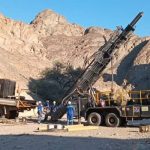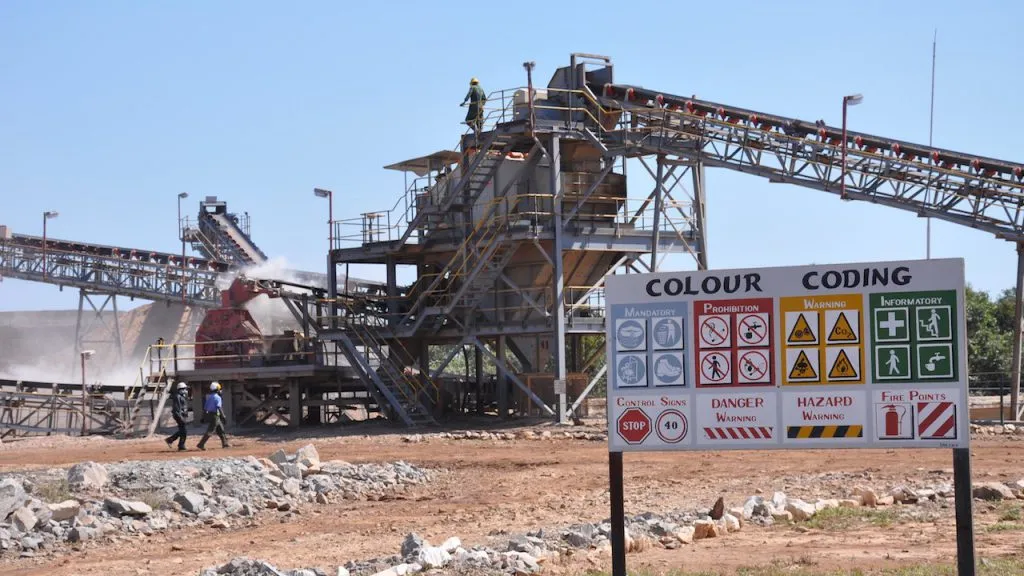The Zambian government has taken over operations at a major copper mining company in what is seen as a move towards increasing its direct control of the key mining sector. Economists are urging Lusaka to tread carefully.
ADVERTISEMENT
Economists in Zambia paid close attention when the government announced that it would acquire Mopani Copper Mines Limited. The copper and cobalt exporting firm is jointly operated by companies based in Switzerland and Canada. The Zambian government owns only 10% of the company.
There had been a string of conflicts with the Swiss-based Glencore plc and Canada-based First Quantum Minerals Limited over a temporary shutdown of its mines in the northern Copperbelt Province. The points of contention were due to the COVID pandemic and retrenchments, taxes, and electricity pricing.
For John Tembo, a resident in Lusaka, the government’s Mopani mine takeover could be a double-edged sword. “The people who are going to retire, where is the money going to come from?” Tembo posed. “If the government is taking over, they have to do it in the quickest way by paying off the retirees,” Tembo told DW.
More than 73,000 people are employed in Zambia’s extractive industry, representing 2.4% of the workforce in the southern African nation of nearly 18 million people.
Someone holds cobalt in her hands.Someone holds cobalt in her hands. The mining industry significantly contributes to Zambia’s government revenuesImage: picture-alliance / © Balance/Pho “The mines need to belong to the government and not foreigners. The opposite means the country’s minerals only benefit foreigners,” Emmanuel Chisala, a Lusaka resident, told DW.
Vague takeover details
Little about the deal valued at $1.5 billion (€1.2 billion) has been made public. Still, speculation is swirling over the government’s end game and the effect it could have on Zambia’s bid to win a desperately-needed International Monetary Fund (IMF) bailout loan.
“The Mopani mine takeover is a good idea because Zambia needs to be in charge of its assets,” Jerice Anosis, who resides in the capital, told DW. “My worry is how Zambia will pay back the debt because right now we owe a lot. We have a lot of debt to pay.”
The Mopani deal will be financed through a loan to be serviced via its future sales, according to economist Professor Oliver Saasa. Zambia, he said, plans to repay that loan by giving Glencore creditors 3% of the mine’s revenue. That would transpire over the next three years, after which the creditors will receive between 10% and 17.5%, he said.
Map showing Zambia’s Copperbelt Map showing Zambia’s Copperbelt If big companies slow down on big investments because of Mopani Copper Mines’ fate, mining consultant Ron Smit said that developments in the sector are likely to stall.
“These actions by government that look like they are unilateral, are never, never good in any country,” Smit told DW. “You would really hope for a sector where government and the industry are in better conversations with each other so that these issues can be avoided.”
The Zambian government, however, insists that the deal was agreed upon on a mutual basis. Lusaka also said it will not bear the burden of repaying the loan. The $1.5 billion debt owed by Mopani to Glencore is not guaranteed by the government, and will therefore not be considered as part of Government debt, Mukuli Chikuba, permanent secretary at Zambia’s finance ministry, said in a written statement.
Are gold mines next?
Zambia’s government appears to have its eye on the gold mining sector too. Lusaka reportedly plans to start buying gold directly from miners to bolster foreign reserves, which it says will speed up economic recovery.
An aerial view of a copper mine in Zambia.An aerial view of a copper mine in Zambia.
Zambia is Africa’s second largest copper producer after the Democratic Republic of CongoImage: Imago Images/Zumapress
But Smit said this places any government in the impossible position of being both a player and a referee on the same field.
“I am very much in favor of very strong governance over the mining sector, but I’ am not in favor of government ownership of mines or any other industry for that matter.”
President Edgar Lungu is pushing for Zambians to secure majority stakes in selected strategic mines to benefit from their country’s mineral wealth beyond taxes.
Mining accounts for 77% of Zambia’s total exports, nearly 28% of government revenues also come from the sector, according to the Zambia Extractive Industries Transparency Initiative (EITI).
Zambia’s President Edgar Lungu addressing people.Zambia’s President Edgar Lungu addressing people. President Edgar Lungu would like Zambians to get a bigger share from mining revenuesImage: Xinhua/imago images Zambia’s debt challenges Professor Saasa is just one of several experts warning the government to consider the effects that the deal could have on the country facing a hard fiscal crisis and the liquidity challenges it could bring to the copper mining company. “It is sending another signal, whether real or perceived, that Zambia is a difficult environment in which to do business.” Chibamba Kanyama, a Zambian economist, told DW.
According to Kanyama, the acquisition of more debt might make the IMF question Zambia’s seriousness about debt sustainability. Zambia entered negotiations with the global financial institution for a loan after it became the first country in Africa to default on its debt since the pandemic started. Experts say that loan is unlikely to come by election time in August 2021.
“It makes us get very concerned as to whether we have understood all the risks that pertain to mining and whether we have put adequate measures to control that,” Kanyama said.















